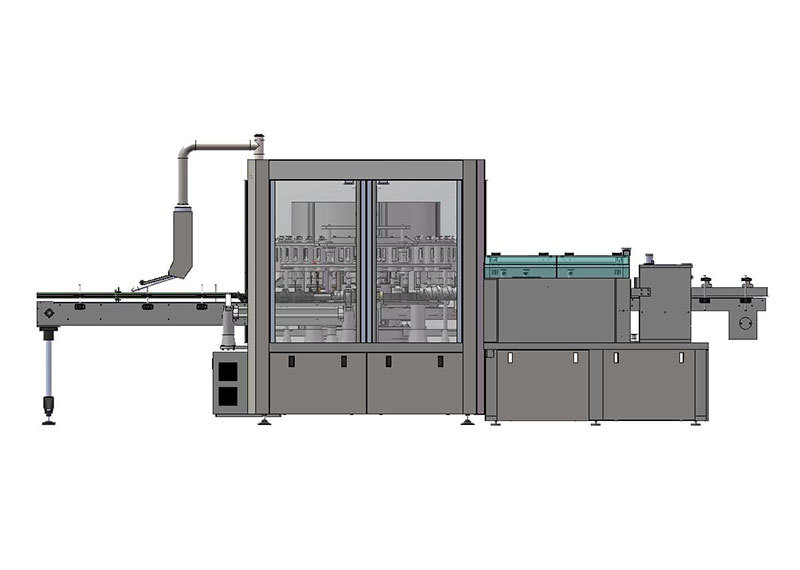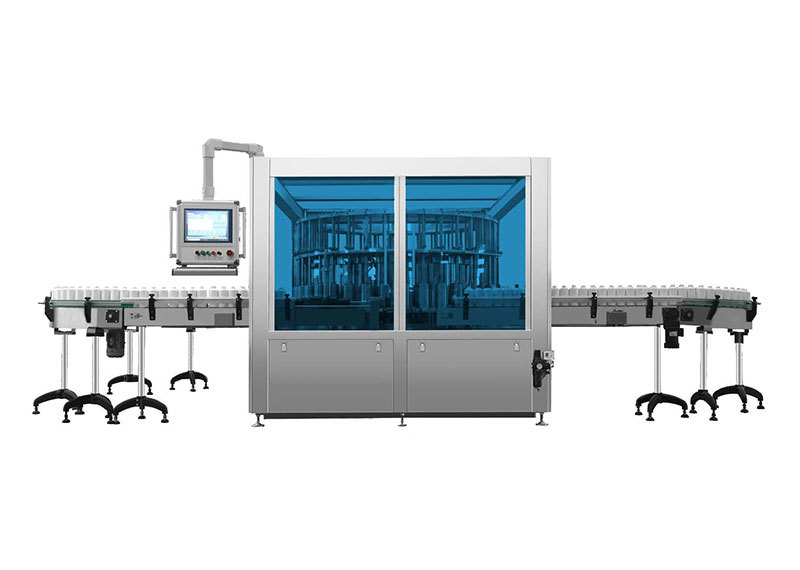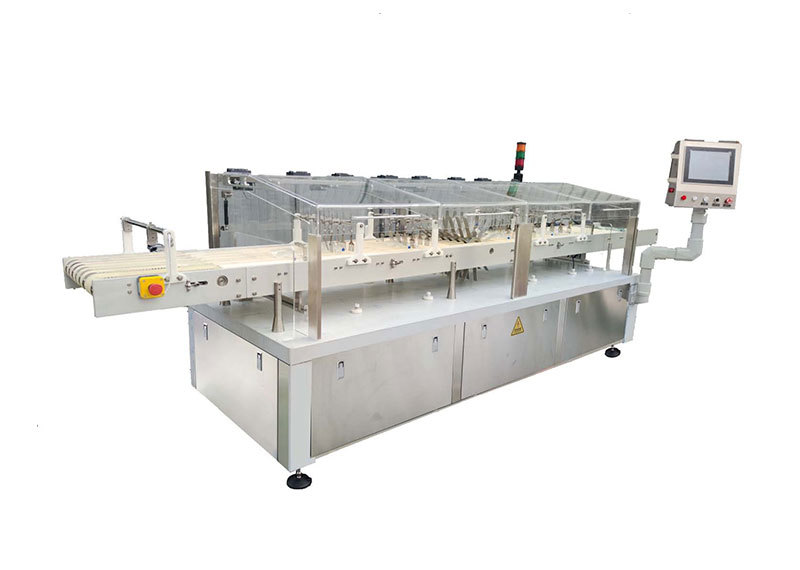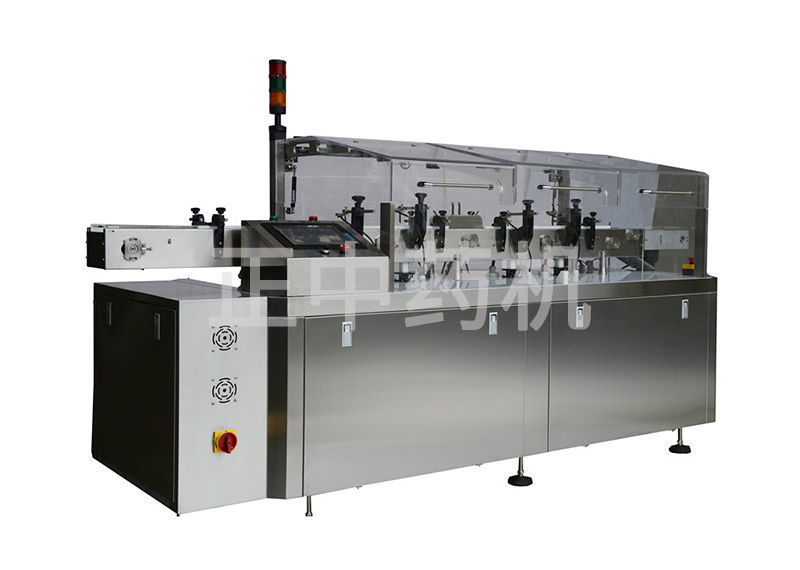Product Center
-
● Automatic inspection machine for particulate matter in ampoules
-
● Automatic inspection machine for oral liquid foreign objects
-
● Automatic inspection machine for lyophilized preparations in vials
-
● Automatic foreign object inspection machine for plastic bottle intravenous infusions
-
● Electronic microporous leak detector for ampoule injections
-
● Fully automatic electronic microporous leak detector for infusion
-
● Automatic foreign object inspection machine for glass bottle intravenous infusions
-
● In-line plastic ampoule electronic micro-hole leak detector
SJL200 fully automatic electronic microporous leak detector for intravenous infusion
Mainly engaged in the research and development of ceramic new material valves, with metal valves (gate valves, globe valves, ball valves, butterfly valves) as a secondary business. Ceramic valves have been successfully applied in many new energy battery material plants, thermal power plants, nuclear power plants, chemical plants, steel plants, coal chemical industry, polysilicon and other industries, and have been listed as special-purpose products, contributing to energy conservation and environmental protection for enterprises and society.
Category
Fully automatic electronic microporous leak detector for infusion

Details
Main Use
Mainly used for leak detection of infusion bottles (including plastic and glass bottles)
Working Principle
Containers are sent to the in-bottle indexing wheel via a conveyor belt for equal spacing. 30 equally spaced robotic arms on a large turntable pick up bottles at a uniform speed and then rotate 180°. After two rotations, the containers reach different workstations for upper and lower part detection. After detection, they enter the out-bottle indexing wheel, and the reject mechanism separates qualified and unqualified products onto different conveyor belts.
Detection Principle
V is a high-frequency, high-voltage detection power supply, with both ends connected to the emitter and receiver, respectively. C1 and C2 are the capacitance values between the electrodes and the solution (due to the insulation of the bottle wall, the electrodes cannot contact the solution, thus generating capacitance), and R is the resistance value of the solution. When the container is not leaking, an induced microcurrent I1 is generated. When the container leaks, the capacitance between the bottle wall and the electrodes disappears, the capacitive reactance generated by the capacitance is zero, and a larger microcurrent I2 is generated in the circuit. By comparing the magnitude of the microcurrent, it is determined whether the container is leaking.

Main Technical Parameters
Applicable range: 100-1000ml infusion bottles (plastic or glass bottles)
Output: 140~200 bottles/min
Power Capacity: 4.6kW, 380V 50Hz
Voltage Output Range: 10kV~45kV
Frequency Output Range: 500Hz~50kHz
Number of Power Supplies: 4-channel high-frequency, high-voltage power supply output
Weight: Approximately 2000kg
Dimensions: 1900×2120×1800mm(L×W×H)
Bottle Conveyor Dimensions: 5450×570×960mm(L×W×H)
Main Advantages
- No risk of secondary pollution. Because no dyes or other liquids are used, there are no pollution problems.
- Can detect ultra-fine pores (above 0.1 microns), with leak detection accuracy not possessed by other leak detection methods.
- Fully automatic, individual leak detection. Can be used as a standalone machine or in a production line.
- Because the energy applied to the product is low and the time is short, there are no side effects on the liquid inside the product.
- Achieves non-destructive testing of containers. Different applied voltages are set according to the different withstand voltage values of the containers to protect the material of the containers themselves.
- Suitable for leak detection of various packaging containers, such as large infusion bottles (including glass and plastic bottles), and blow-fill-seal products.
- Can detect key parts of the container (such as the neck and bottom) according to user requirements.
- The entire machine uses synchronous belt drive, ensuring stable operation and low failure rate.
- Compact structure, beautiful appearance, quick-release mold structure, positioning pin connection, convenient for daily maintenance.
- User-friendly touch screen interface with powerful control, display, and data acquisition functions.
Mainly engaged in the research and development of ceramic new material valves, with metal valves (gate valves, globe valves, ball valves, butterfly valves) as a secondary business. Ceramic valves have been successfully applied in many new energy battery material plants, thermal power plants, nuclear power plants, chemical plants, steel plants, coal chemical industry, polysilicon and other industries, and have been listed as special-purpose products, contributing to energy conservation and environmental protection for enterprises and society.
Main Use
Mainly used for leak detection of infusion bottles (including plastic and glass bottles)
Working Principle
Containers are sent to the in-bottle indexing wheel via a conveyor belt for equal spacing. 30 equally spaced robotic arms on a large turntable pick up bottles at a uniform speed and then rotate 180°. After two rotations, the containers reach different workstations for upper and lower part detection. After detection, they enter the out-bottle indexing wheel, and the reject mechanism separates qualified and unqualified products onto different conveyor belts.
Detection Principle
V is a high-frequency, high-voltage detection power supply, with both ends connected to the emitter and receiver, respectively. C1 and C2 are the capacitance values between the electrodes and the solution (due to the insulation of the bottle wall, the electrodes cannot contact the solution, thus generating capacitance), and R is the resistance value of the solution. When the container is not leaking, an induced microcurrent I1 is generated. When the container leaks, the capacitance between the bottle wall and the electrodes disappears, the capacitive reactance generated by the capacitance is zero, and a larger microcurrent I2 is generated in the circuit. By comparing the magnitude of the microcurrent, it is determined whether the container is leaking.

Main Technical Parameters
Applicable range: 100-1000ml infusion bottles (plastic or glass bottles)
Output: 140~200 bottles/min
Power Capacity: 4.6kW, 380V 50Hz
Voltage Output Range: 10kV~45kV
Frequency Output Range: 500Hz~50kHz
Number of Power Supplies: 4-channel high-frequency, high-voltage power supply output
Weight: Approximately 2000kg
Dimensions: 1900×2120×1800mm(L×W×H)
Bottle Conveyor Dimensions: 5450×570×960mm(L×W×H)
Main Advantages
- No risk of secondary pollution. Because no dyes or other liquids are used, there are no pollution problems.
- Can detect ultra-fine pores (above 0.1 microns), with leak detection accuracy not possessed by other leak detection methods.
- Fully automatic, individual leak detection. Can be used as a standalone machine or in a production line.
- Because the energy applied to the product is low and the time is short, there are no side effects on the liquid inside the product.
- Achieves non-destructive testing of containers. Different applied voltages are set according to the different withstand voltage values of the containers to protect the material of the containers themselves.
- Suitable for leak detection of various packaging containers, such as large infusion bottles (including glass and plastic bottles), and blow-fill-seal products.
- Can detect key parts of the container (such as the neck and bottom) according to user requirements.
- The entire machine uses synchronous belt drive, ensuring stable operation and low failure rate.
- Compact structure, beautiful appearance, quick-release mold structure, positioning pin connection, convenient for daily maintenance.
- User-friendly touch screen interface with powerful control, display, and data acquisition functions.
Next Page
Next Page
Related Products
Inquiry




